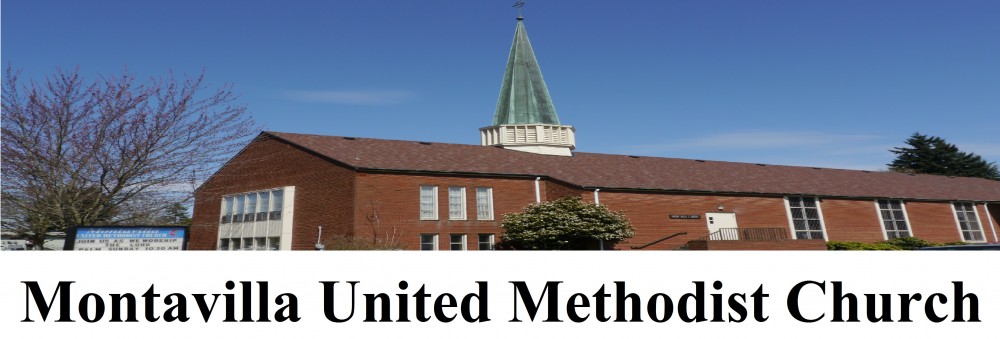Matthew 6:1-15 NRSVUE
“Beware of practicing your righteousness before others in order to be seen by them, for then you have no reward from your Father in heaven.
2 “So whenever you give alms, do not sound a trumpet before you, as the hypocrites do in the synagogues and in the streets, so that they may be praised by others. Truly I tell you, they have received their reward. 3 But when you give alms, do not let your left hand know what your right hand is doing, 4 so that your alms may be done in secret, and your Father who sees in secret will reward you.
5 “And whenever you pray, do not be like the hypocrites, for they love to stand and pray in the synagogues and at the street corners, so that they may be seen by others. Truly I tell you, they have received their reward. 6 But whenever you pray, go into your room and shut the door and pray to your Father who is in secret, and your Father who sees in secret will reward you.
7 “When you are praying, do not heap up empty phrases as the gentiles do, for they think that they will be heard because of their many words. 8 Do not be like them, for your Father knows what you need before you ask him.
9 “Pray, then, in this way:
Our Father in heaven,
may your name be revered as holy.
10 May your kingdom come.
May your will be done
on earth as it is in heaven.
11 Give us today our daily bread.
12 And forgive us our debts,
as we also have forgiven our debtors.
13 And do not bring us to the time of trial,
but rescue us from the evil one.
14 “For if you forgive others their trespasses, your heavenly Father will also forgive you, 15 but if you do not forgive others, neither will your Father forgive your trespasses.
We’re still in the Sermon on the Mount.
We started with learning that being Blessed is about being a blessing to others.
Then we talked about what it means to be Salty, Lit and Righteous – that Jesus does call us to stand up for our faith.
But in this passage Jesus has a few words about how we shouldn’t practice our faith in public.
And it might seem kinda confusing because in chapter 5, Jesus is telling us that we’re blessed when we get persecuted like the prophets for standing up for God (Mt 5:11-12)
And then Jesus tells us not to hide our light under a bushel basket, NO!
Let it shine, let it shine, let it shine! (Mt 5:14-16)
But now we’re not supposed to practice our righteousness before others?
It sounds contradictory, if we aren’t paying attention to the subtle, but major differences.
Verse one of today’s reading lays out the important difference of intent between
Performative Faith
And
Sincerely following Jesus.
Look at verse 1 where it says:
“Beware of practicing your righteousness before others in order to be seen by them.
If you’ve got a pencil or pen or lipstick or eyeliners on you – underline the words:
“In order to be seen by them.”
“In order to be seen by them.”
“In order to be seen by them.”
There are 2 versions of Christianity in this country right now.
Fans and Followers.
Fans of Jesus — are the people who go to Churches who sing songs about how much they love God, and have fabulous youth and children’s programs, and small groups, and all the stuff that people like… but pretty much ignore the teachings of Jesus to love our neighbors.
This is how I was raised. I was raised to be a fan.
I was taught that I needed to go to church every week.
Say the right prayers, do the right rituals.
Dress with modest femininity.
Be polite and obedient, and nice.
And then leave church stuff at church.
I was supposed to love God, but not necessarily love my neighbors, because, well, that’s just not the way the world works.
I was taught that “the Lord helps those who help themselves,” as if it’s in the Bible, which it is not.
For Fans of Jesus, Church is about respectability and Western Culture.
For Fans, faith is kinda like a religion badge that helps you gain entrance into the “right circles”
We hear this performative faith from politicians all the time:
- Quoting the Bible out of context in order to be seen by the crowd as having Christian credibility.
- Showing up at a national day of prayer in order to be seen by the crowd.
- Preaching White Nationalism, and “our European Heritage” and calling it Christianity.
And we see this performative faith in Churches and Pastors whose only metric for faithfulness is the number of converts who attend their church. Disciples, who make disciples, who make disciples, who make disciples to make more disciples, as if the numbers game is all that matters to God.
Fans or followers….
Followers of Jesus — are often people who go to Churches who may not have the most fabulous worship experience or the best ever children and youth programs, but who are actively working to love our neighbors, care for the least of these, welcome the stranger, and include the outcasts — because that’s what Jesus taught.
And ironically, I learned to be a follower instead of a fan, at a large, pentecostal, Assemblies of God church,with a good worship experience, a great youth program that actively evangelized me, and supported a ministry to the unhoused…however, they weren’t great at including the outcasts, but they did include me.
And in that offshoot of Methodism, Assemblies of God are an offshoot of the Methodist Holiness movement…in that offshoot of Methodism, I experienced Sanctification during an altar call.
They asked everyone who was ready to commit their lives to Jesus to raise their hand and I raised my hand.
Sanctification is the 3rd type of Methodist Grace.
Methodists name 3 kinds of Grace:
- Prevenient Grace – pre, as in before we love God, God loves us.
- Justifying Grace – Now we know we are loved and “justified” – is old language for forgiven and accepted.
- Sanctifying Grace – Now that we know that God loves us – All of us – we realize that we are called to love our neighbors.
I already knew that God loved me and I loved God — I was already a fan of Jesus!
But in that altar call moment I felt Jesus asking me to follow him. To change how I lived outside of church.
And at first I thought that meant that I needed to be a better fan-girl!
- Wear more Christian T-shirts
- Listen to more Christian music.
- Go to church several times a week…because once a week attendance was for those who weren’t fully committed!
- And….Study the Bible.
That last one got me.
The more I studied the Bible, the more I started to realize that there was more to being a disciple than making more disciples.
That God has things to say about how we use money.
God has things to say about justice and mercy for the poor and the oppressed.
That when Jesus encountered the gay Centurion with the sick body servant (Doulas Pita is the Greek – which was gay coded language at the time) Jesus was totally ready to hop on over to their house and heal – even though their household was not Jewish, was gay, and was Roman! (Matt 8:5-13)
That God called the Prophets to criticize bad leaders for their lack of mercy towards the poor over and over again!
The more I studied the Bible, the more I began to realize that it is not enough to make disciples – we must also teach them to obey everything that Jesus taught us. (Matthew 28:19-20).
It was when I started to care about justice and mercy for the last and the least that I realized that being a fan of Jesus makes good photo-ops.
Being a follower of Jesus means not only getting out of our own comfort zones – but acting outside of the comfort zone of our culture.
And we need to pray in private and pray that God’s will be done, because sometimes God calls us to Follow Jesus into situations where we don’t know how to do this yet. And it’s just not dignified to be praying – are you sure God??? Surely there’s someone better prepared to do this!
And we need to pray for our daily bread because those who do justice, practice mercy and walk humbly with God seldom get rich doing it!
And we need forgiveness for ourselves and others because following Jesus is counter cultural and people are going to criticize us.
You may notice that the last line of the traditional Lord’s prayer isn’t there – “for thine is the kingdom and the power and the glory forever and ever” isn’t in the Bible.
I didn’t end the passage too soon.
It just isn’t in there.
Verse 16 reads,
16 “And whenever you fast, do not look somber, like the hypocrites, for they mark their faces to show others that they are fasting. Truly I tell you, they have received their reward.
Jesus didn’t tell us to give God elaborate fan-girl praise – Look at verse 7.
7 “When you are praying, do not heap up empty phrases as the gentiles do, for they think that they will be heard because of their many words”
I don’t think that going to church is bad – obviously I’m here.
I just don’t think going to church makes you a follower of Jesus anymore than standing in a garage makes you a car.
I don’t think that singing is bad – I think we need to sing, as a form of meditation and prayer to realign our hearts and minds towards God.
And I’m totally in favor of quality church programs for all ages.
I’m also very in favor of evangelism – and – once they’re here, let’s teach people what Jesus actually taught!
But none of these things are an end unto themselves.
They are means for the goal of following Jesus.
Following Jesus so that God’s will be done here on earth as it is in heaven.

